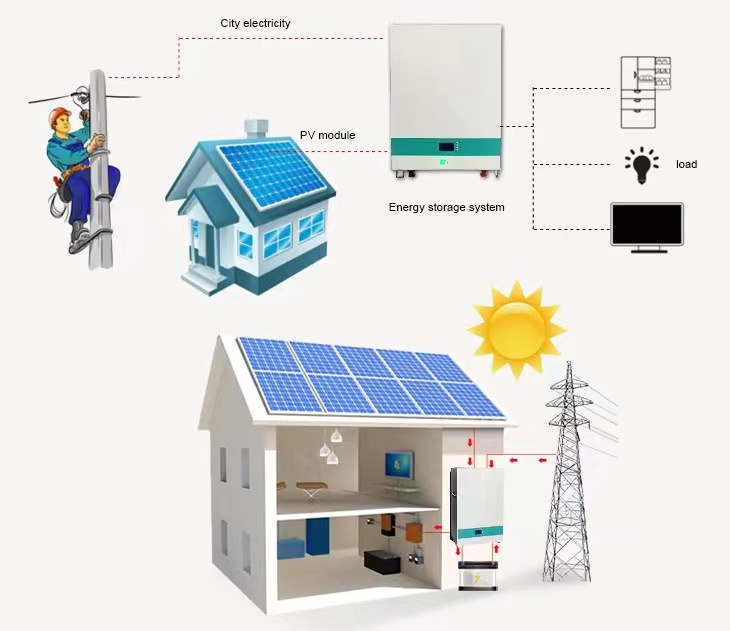Views: 221 Author: Ubest Publish Time: 2023-10-08 Origin: Site









Home energy storage systems are gaining popularity as a product that can efficiently store electricity and meet the demand for household electricity as a result of the ongoing development of new energy technology. What aspects then, should we take into account when selecting a home energy storage system? Here is a thorough overview for you.
The battery capacity of a home energy storage system directly affects how much power it can store. It is one of the most important criteria. Generally speaking, the larger the battery capacity, the stronger the energy storage capacity of the power supply and the longer it can meet the demand for household electricity. However, the larger the battery capacity, the volume and weight of the power supply will also increase accordingly, so you need to choose according to your actual needs.
Cycle life refers to the number of times a battery can be charged and discharged between full charge and discharge. Generally speaking, the longer the cycle life of the battery, the longer the service life of the battery and the more times it can be used. When choosing a home energy storage system, you should choose a product with a longer cycle life.
Charging speed is also one of the important parameters of a home energy storage system. Generally speaking, the faster the charging speed, the shorter the time it takes for the battery to be fully charged, which can meet household electricity demand faster. However, the faster the charging speed, the lower the charging efficiency of the battery, so there is a trade-off between charging speed and charging efficiency.
Safety performance is one of the factors that must be considered for any electronic product. When choosing a home energy storage system, you should choose a product with multiple protection functions, such as overcharge protection, over-discharge protection, over-current protection, high-temperature protection, low-temperature protection, and disconnection protection. These protection functions can effectively ensure the safety of the power supply and home electricity.
One issue to examine is the compatibility of the home energy storage system. A home energy storage system should, in general, work with other electrical devices and equipment in the household, such as inverters, solar panels, and other devices. For a home energy storage system to function better with other devices, you should opt for a product with better compatibility.
As renewable energy sources and electric vehicles gain popularity, energy storage battery technology is becoming more and more crucial. In the field of energy storage batteries, long-life and short-life are two important classifications, which are mainly based on the number of cycles and life of the battery.
Long-life energy storage batteries are those batteries that have a long service life. These batteries typically use more advanced electrode materials and battery management systems to achieve longer cycle times and longer life. Long-life storage batteries are typically capable of providing more than 3,000 charge/discharge cycles and have a lifespan of 10 years or more.
Long-life energy storage batteries have high energy and power densities, as well as long service lives and low self-discharge rates. These features make long-life energy storage batteries better adapted to a variety of application scenarios, such as renewable energy storage, smart grids, electric vehicles, and so on.
In contrast, short-life energy storage batteries have a shorter lifespan, generally providing less than 1,000 charge/discharge cycles, with a lifespan of about 2-3 years. These batteries typically use simpler electrode materials and battery management systems to achieve faster charging speeds and lower manufacturing costs.
Batteries for short-term energy storage have higher self-discharge rates and significantly lower energy and power densities. Short-life energy storage batteries are more suited for some particular application scenarios, such as backup power, power peaking, and so forth, due to their properties.
Users must select the appropriate battery type for their specific needs and use scenarios when selecting an energy storage battery. A long-life storage battery is an option if you demand a higher energy density and longer service life; a short-life storage battery may be more appropriate if you require a faster charging speed and cheaper manufacturing cost with less stringent service life criteria.